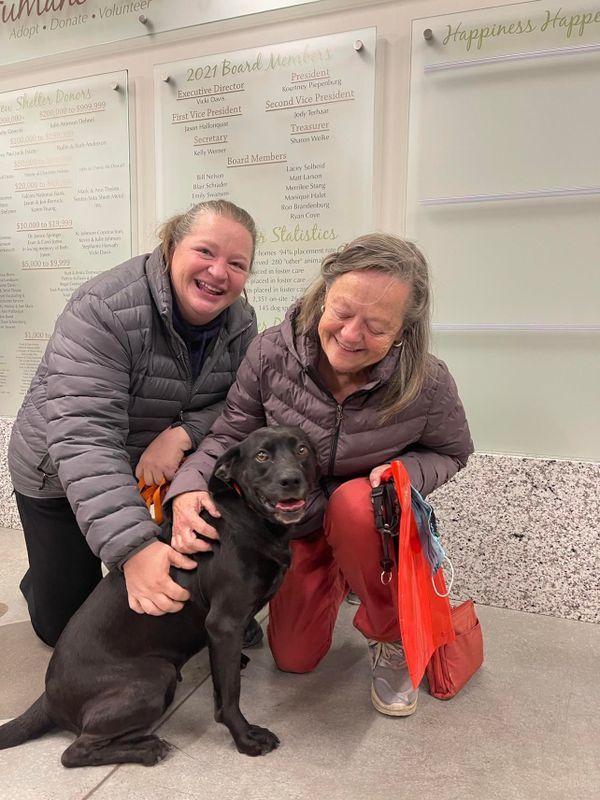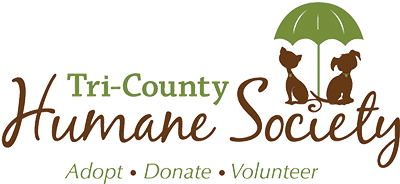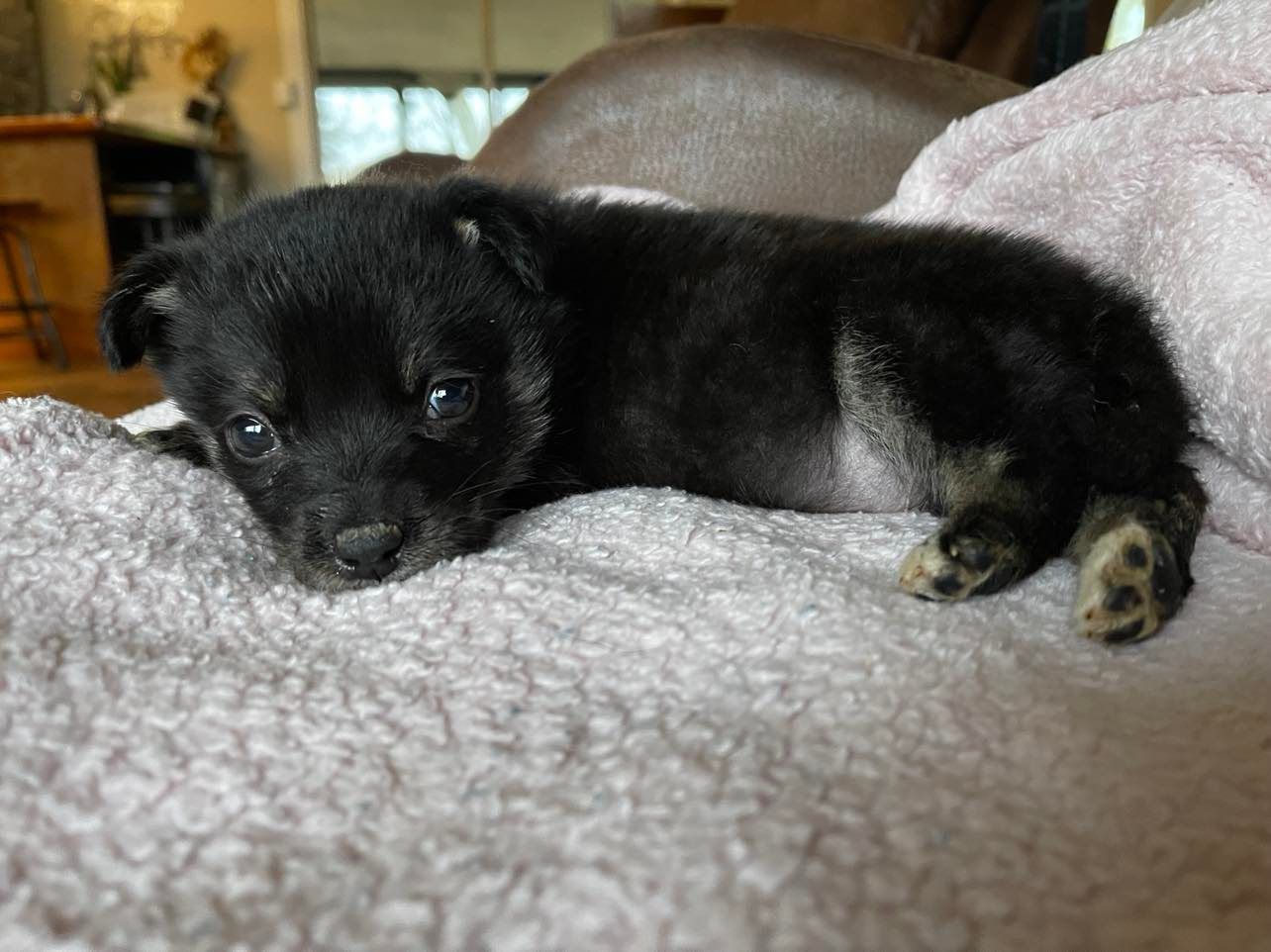Adoptable Pets

Thank you for wanting to adopt a pet from Tri-County Humane Society. We hope you find what you’re looking for, but if not, visit again tomorrow! New pets in need of a loving home arrive daily. If you have any questions regarding the pets on our website, please call us at (320) 252-0896. Our knowledgeable staff and volunteers will assist you in finding a good match for you and your household.
Adoption Stories
We look forward to adding your adoption story to the list soon!
Adoption Holds
Animals are adopted quickly from Tri-County Humane Society, so we advise you to call us if you find an animal you are interested in to place an adoption hold on them. (Adoption holds are $25 plus tax.) To place an adoption hold on a pet, call us at (320) 252-0896 and have your Visa, Discover, American Express, or Mastercard ready; holds also can be placed in person at the shelter. NOTE: Tri-County Humane Society CANNOT reserve an animal without an adoption hold. (Holds cannot be placed through email or social media messaging.)
HOW ADOPTION HOLDS WORK: A $25 plus tax “hold” reserves the TCHS animal of your choice for one day. We do take multiple holds, but it’s always first come, first served. People do change their minds about adoption, and that’s OK - if you’ve fallen in love, you may want to place another hold!
THE DETAILS: All holds are nonrefundable and nontransferable. It is a fee for a service (to hold the animal for you); the adoption fee plus tax will still need to be paid in full. If the animal is not adopted by the person with the hold, the pet is available again.
WHAT THE “HOLD” MONEY GOES TO: It helps support our nonprofit animal shelter and the 5,000-plus animals we help every year!
NOTE: Minnesota sales tax and an administrative fee ($20 for cats/dogs and $10 for small animals) will be applied to all adoptions. Donations and adoption fees help cover the cost of spay/neuter surgeries, microchipping, vaccinating, deworming, any medical procedures, and general care of all shelter animals.
Adoption Questions:
1. Are all pets spayed or neutered prior to adoption? Yes. In an effort to reduce accidental litters and decrease the number of unwanted pets in our community, we have been committed to spaying/neutering all dogs, cats, puppies, kittens and rabbits prior to adoption since 2012. The cost of this procedure is included in the adoption fee, not in addition to it.
2. Are the pets available for adoption healthy? We receive pets of all ages in varying states of health, and it is simply not possible to guarantee the health of every animal. All pets receive a basic physical examination and temperament evaluation, performed by our animal care team. Any concerns are addressed by our shelter veterinarian and necessary treatments are prescribed. If continued treatment is necessary following adoption, this information will be clearly explained to you at the time of adoption and a full medical history of what we have done for your new pet will be provided. It is important to know that we are not a veterinary clinic, however, and we are limited in our abilities. It is strongly recommended that you visit a veterinarian of your choice shortly after adopting your new pet.
3. Do the pets receive vaccinations? All dogs and cats receive distemper combination vaccines. Dogs also receive a Bordetella vaccine to help prevent kennel cough. Some pets receive rabies vaccines, but not all.
4. Are the pets free of parasites? We check all animals for fleas, lice, ear mites, and ticks, and treatment is administered if anything is detected. All dogs and cats receive a standard deworming with their examination that covers roundworm and hookworm. It is recommended that this deworming be repeated two more times to cover all life stages of the parasites if any are present, so depending on the length of time the animal is in our care, follow-up deworming may need to be completed at your veterinary clinic.
5. Are the pets microchipped? Yes. All dogs, cats, and rabbits receive microchips, and your information is registered with the microchip company during the adoption process. Microchips are not a tracking device, but rather an identification chip inserted under the skin that cannot be removed, unlike collars with tags that can fall off. It is standard practice for animal shelters and veterinary clinics to scan stray pets to see if a microchip is found. It is safe for pets, and it is one of the most effective means to reunite lost pets with their owners.
6. Is there a return period if the adoption does not work out? Yes. We have a 30-day return period during which your adopted pet may be returned for any reason. The customer will receive a full adoption fee refund upon returning the animal.
7. What if I need to return my adopted pet after the 30-day return period? After the 30-day return period, you will be asked to pay a surrender fee to return your adopted pet. Please call first as we take in animals using scheduled appointments. Be prepared that, depending on the time of year, we may be booking appointments out a few weeks or more. We can rarely accommodate same-day appointments as our shelter is almost always full.
8. What adoption discounts are available? Seniors ages 55 and older and/or active military members/veterans may receive 25 percent off any animal's adoption fee; the animal must be 1 year or older. TCHS is always evaluating our adoption fees and often reduces prices for longer-stay animals.

MBAH Kennel License # MN140200









